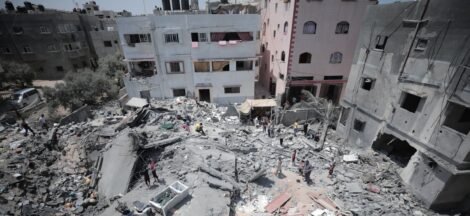Saudi Arabia’s Crown Prince and Palestinian President Discuss Upcoming 2025 Peace Conference
In a significant diplomatic development, Saudi Arabia’s Crown Prince Mohammed bin Salman and Palestinian President Mahmoud Abbas recently held high-level discussions on the upcoming 2025 peace conference, marking a pivotal moment in Saudi-Palestinian peace talks. The meeting underscored Saudi Arabia’s continued commitment to fostering stability in the region and advancing a two-state solution. As global attention turns toward the Middle East, these Saudi-Palestinian peace talks could play a crucial role in shaping the future of Israeli-Palestinian relations and broader regional diplomacy.
Key Discussions in the Saudi-Palestinian Peace Talks
The closed-door meeting between Crown Prince Mohammed bin Salman and President Mahmoud Abbas focused on several critical issues, including the framework for the 2025 peace conference, economic cooperation, and humanitarian aid for Palestinians. Both leaders emphasized the need for a unified Arab stance in supporting Palestinian rights while ensuring regional security. The Saudi-Palestinian peace talks also addressed the importance of international backing, with Saudi Arabia positioning itself as a mediator between Palestinian factions and global stakeholders.
Sources close to the discussions revealed that the Crown Prince reaffirmed Saudi Arabia’s support for a Palestinian state based on the 1967 borders, with East Jerusalem as its capital. This stance aligns with the Arab Peace Initiative, which has been a cornerstone of Saudi foreign policy. The talks also explored potential economic incentives, including Saudi investments in Palestinian infrastructure, to bolster stability ahead of the 2025 conference.
The Role of Saudi Arabia in Middle East Diplomacy
Saudi Arabia has increasingly taken on a leadership role in Middle Eastern diplomacy, particularly concerning the Palestinian issue. The Kingdom’s recent normalization agreements with other regional players have positioned it as a key mediator in conflict resolution. The Crown Prince’s direct engagement with President Abbas signals Riyadh’s intent to drive the peace process forward, leveraging its political and economic influence.
Experts suggest that Saudi Arabia’s involvement could bring much-needed momentum to stalled negotiations. Unlike previous attempts, the 2025 peace conference may benefit from broader Arab consensus, thanks in part to Saudi-led diplomatic efforts. The Kingdom’s Vision 2030 reforms, which emphasize regional stability as a prerequisite for economic growth, further highlight why these Saudi-Palestinian peace talks are strategically significant.
Challenges and Opportunities Ahead
Despite the optimism surrounding the upcoming conference, significant challenges remain. Internal divisions among Palestinian factions, Israeli political dynamics, and competing international interests could complicate progress. However, the Saudi-Palestinian dialogue presents an opportunity to bridge gaps, particularly if Riyadh can secure broader Arab and Western support for a viable peace plan. For additional perspective, see our post on ai scrutiny & layoffs hit major banks and tech firms.
Another critical factor is the humanitarian situation in Gaza and the West Bank. The discussions between the Crown Prince and President Abbas reportedly included plans for Saudi-funded development projects aimed at alleviating economic hardships. Such initiatives could build public trust in the peace process, making a negotiated settlement more attainable in 2025.
Global Reactions and Next Steps
The international community has cautiously welcomed the renewed Saudi-Palestinian engagement, with the United Nations and European Union expressing support for the 2025 peace initiative. The U.S. has also signaled its approval, though its level of involvement remains uncertain given shifting geopolitical priorities. As preparations for the conference intensify, all eyes will be on whether these Saudi-Palestinian peace talks can translate into concrete agreements.
Moving forward, Saudi Arabia is expected to host preliminary meetings with other Arab states to consolidate a unified position before the 2025 conference. If successful, this could mark a turning point in one of the world’s most protracted conflicts, offering hope for a sustainable resolution.

Conclusion: A Pivotal Moment for Middle East Peace
The recent high-level discussions between Saudi Arabia’s Crown Prince and the Palestinian President underscore the Kingdom’s proactive role in shaping the future of Middle East diplomacy. As the 2025 peace conference approaches, the outcomes of these Saudi-Palestinian peace talks will be closely watched by regional and global stakeholders. With careful negotiation and sustained commitment, this initiative could pave the way for lasting stability in the region.




 Saudi Arabia 2025-2026 School Dates & New AI Curriculum
Saudi Arabia 2025-2026 School Dates & New AI Curriculum